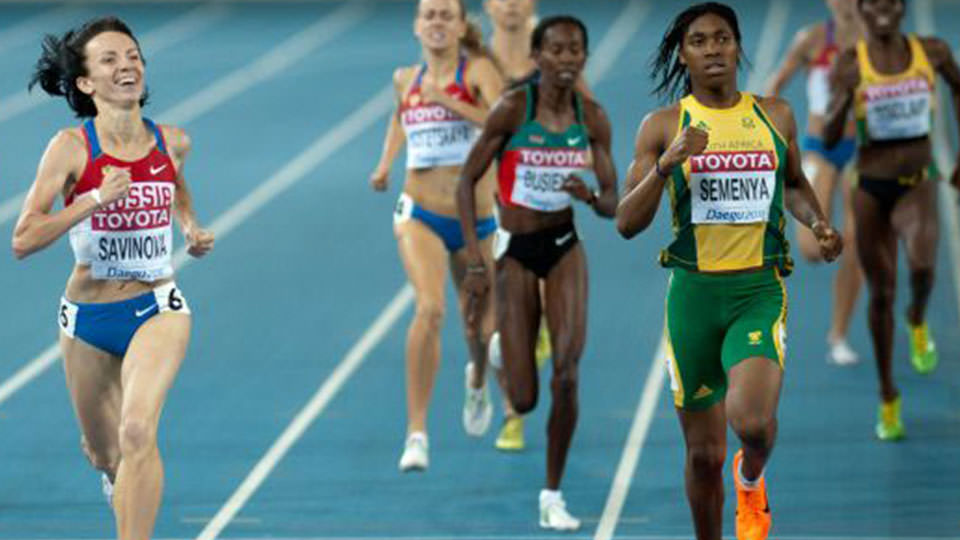Sports
Olympic Champion: Internal Testicles Don’t ‘Make Me Less Of A Woman’
By CM Chaney · November 8, 2023
In brief…
- Semenya barred from events due to refusing hormone treatment to lower natural testosterone
- Vows to "embrace differences" and keep "fighting for what is right" against "discriminatory" rules
- World Athletics defends regulations as necessary to protect integrity of women's sport
- Semenya says rules promote unfairness by "turning women against women" over testosterone

Two-time Olympic champion Caster Semenya says she will continue battling sports authorities over “discriminatory” testosterone regulations barring her from competing internationally.
Semenya, who won gold in the 800m in 2012 and 2016, has an intersex condition leading to naturally elevated testosterone levels. In 2018, track and field’s governing body World Athletics instituted rules requiring intersex athletes like Semenya to lower testosterone to compete in women’s events.
Semenya refuses hormone treatment due to health risks. She is subsequently ineligible for major meets including the Olympics.
In a recent BBC interview, the South African runner said she felt “different” since age 5 but has come to “embrace” her differences.
“I don’t care about the medical terms or what they tell me. Being born without a uterus or internal testicles. Those don’t make me less of a woman,” Semenya stated.
She criticized others dictating what women’s bodies should look like, saying “we need to take charge of our own bodies.” Semenya vowed to “fight for what is right” for the next generation of affected athletes.
World Athletics defends its testosterone regulations as necessary to ensure fairness in women’s sport, citing research showing elevated levels provide significant performance benefits.
But Semenya argues the rules are unethical. “I am not going to be ashamed because I am different,” she told the BBC, adding she has “nothing to hide.”
While Semenya can no longer compete in her signature 800m event, she said her goal now is “winning battles against the authorities” rather than collecting more medals.
She accused sports leaders of “turning women against women” over the disputed testosterone policy. World Athletics maintains it is solely interested in protecting women’s sport.
Semenya previously challenged the regulations in court unsuccessfully. In July, the European Court of Human Rights ruled Switzerland failed to protect Semenya’s rights by permitting the rules.
Semenya’s case spotlights complex issues surrounding intersex and transgender athletes. She continues advocating against restrictions she views as blatant discrimination, while sporting bodies argue regulating testosterone is vital for fairness. Her ongoing dispute with authorities has no clear resolution in sight.